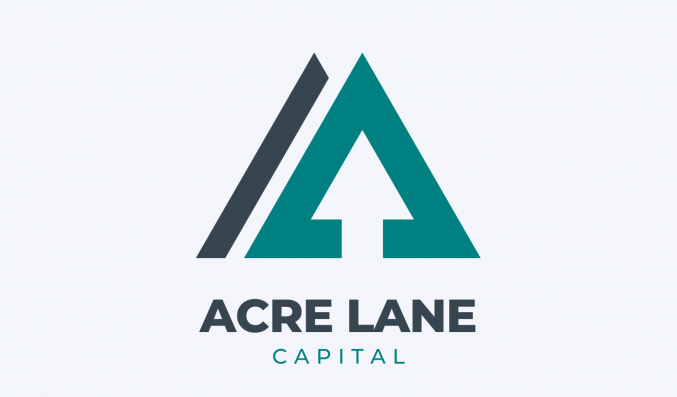Bridging Loans on Land – A Complete Guide
By Helen Jackson

Bridging loans can be a great option if you’re a property developer, a landlord, or an individual looking to move quickly on a property at auction, bridge the gap between buying and selling, or redevelop your property. But what you might not know is that you can use a bridging loan to purchase and redevelop land.
So if you’ve got questions about how you can use bridging finance for this purpose, scan through the post below to find the answers you’re looking for.
Can bridging finance be used to purchase land, and if so how does it work?
Yes, you can use a bridging loan to purchase land, and it works the same as it does when you use it for a property purchase. You can still expect higher interest rates than other more traditional forms of financing, but you can also expect the cash in your account quickly.
When using a bridging loan to purchase land, the lender will want to see a robust exit strategy, your property portfolio, a good credit score, and a good investment opportunity — plus a sizeable deposit.
What about using a bridging loan to fund changes to land?
You can secure a bridging loan for land development and to purchase the land itself. So if you’ve already purchased the land but need finance to develop it, you can apply for a bridging loan to get access to cash quickly and continue with your property project.
Do I need planning permission for the use of the land before I take out a bridging loan?
You don’t necessarily need planning permission before securing a bridging loan for land. However, lending to borrowers who plan to purchase land can be risky, which means there’ll be fewer lenders out there for you to choose from. And if the land doesn’t have planning permission, the pool of lenders you can choose from will shrink further.
Compare our specialist bridging lenders.
What are the benefits and risks to buying land with bridging finance?
Before you sign on the dotted line for bridging finance, you must spend time weighing up the benefits and risks — after all, a bridging loan is known as a pretty expensive financial option.
Benefits of buying land with bridging finance
It’s quick. It’s much quicker to obtain than traditional financial, and fast finance is important in a commercial environment — the housing market moves quickly.
You can borrow a lot of money. Providing you have a clear exit strategy and your investment is viable, the lender can lend you millions.
Risks of buying land with bridging finance
Bridging finance is expensive. Interest rates are calculated on a monthly basis, which means the longer you have the loan the more it’s going to cost you. Use our bridging loan calculator to see how much you could pay.
It’s a secured loan. This means you have to put up collateral to help you secure the loan. If you fail to make repayments, you stand to lose your asset.
Does using a bridging loan for land affect LTV rates or how much I can borrow?
Lending out money to borrowers who want to buy land is riskier than lending for a property purchase; this means it can be a little more challenging to secure. The higher risk means a lower LTV for purchasing land and even lower for land without planning permission. To significantly reduce the lender’s risk, they could ask the borrower for a 35% deposit and as much as 50% if the land you’re buying has no planning permission.
How easy (or difficult) is it to get a bridging loan to buy land, and what makes me more eligible for approval?
Because of the risk lender’s incur from borrowing against land purchases, it can be more difficult to secure a bridging loan. Firstly, there are fewer lenders for you to choose from, which means finding the best provider is time-consuming.
Other factors that make a land bridging loan quicker to obtain include:
- A good credit rating
- Solid exit strategy
- Planning permission
- A comprehensive property portfolio
All these factors are positive indicators to the lender.
As we’ve already mentioned, it’s still possible to secure a bridging loan if you don’t have planning permission. If you have poor credit, again, this doesn’t mean you can’t obtain this loan — good credit is just another indicator of low risk to lenders.
Always research lenders thoroughly to understand their specific criteria. Compare bridging loan lenders in our directory.
How do I find the best LTV to buy land?
The best way to find the most attractive loan to value (LTV) is by comparing specialist lenders. Specialist bridging finance companies are skilled at handling this complex finance — they’ve helped many property developers through the process before so can handle all your bridging finance questions.
What happens to the loan if I choose to switch to a self-build mortgage?
Lining up a self-build mortgage is a common way to repay your bridging loan in full; in fact, it’s an exit strategy that will make lenders happy. Outlining a sturdy repayment plan will give lenders the confidence they need to advance you the money.
You can use the bridging loan to purchase the land initially and then switch to a self-build mortgage to repay the loan and continue with construction or development. The two products work together nicely.
What happens if I decide to sell or remortgage land I brought with a bridging loan?
This is another viable exit strategy option for many borrowers and one that lenders would welcome. After developing the land, many property developers will sell for a profit or remortgage and use a portion of this money to repay the bridging loan in full.
Got lots of questions? Find a trusted bridging finance provider.
Summary
You can secure bridging finance with or without planning permission; you can use the loan to purchase land or for land development purposes. But what matters most is finding a specialist company to handle this sometimes complex process — someone who’s been there done that many times.
The specialists we work alongside are knowledgeable and have experience processing bridging loan applications for decades, so if you’ve got questions about using a bridging loan for land, get in touch with them today and ask away.
Read our guide to learn more about Bridging Finance for Property Development & Construction.










You must be logged in to post a comment.